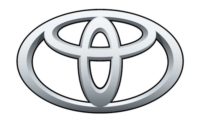Microvast Holdings, a Texas-based company that designs, develops and manufactures lithium-ion batteries, said May 24 that it will continue its expansion in the U.S. while it “considers all of its options” after the U.S. Energy Dept. withdrew its conditional $200 million grant to the firm to support a $504-million polyaramid separator plant in Kentucky on which it is collaborating with General Motors.
The company was selected last November to receive the grant under battery manufacturing incentives of the 2021 Infrastructure Investment and Jobs Act. DOE said Microvast is known for its “cutting-edge cell technology and its vertical integration capabilities from core battery materials to battery packs,” stating the company is majority U.S-owned.
But Rep. Frank Lucas, (R-Okla,) chairman of the House Committee on Science, Space and Technology, claims in a May 25 letter to the agency that Microvast has “known ties to the Chinese Communist Party, adding that ”DOE's "lack of sufficient guardrails to protect federal research dollars escalates our serious concerns about [its] research security practices.”
DOE said in a statement that it “maintains a rigorous review process prior to the release of any awarded funds, and it is not uncommon for entities selected to participate in award negotiations″ to not receive funding ultimately.
The agency did not respond to queries about its decision to cancel the grant. But Energy Secretary Jennifer Granholm noted earlier that DOE was performing a post-selection due diligence review of the firm and can cancel award negotiations and rescind a selection “for failure to satisfy applicable legal, policy or other requirements.”
Yang Wu, Microvast founder, chairman and CEO said the company was surprised about the DOE decision. “Microvast is based in Texas, its shares are traded on Nasdaq, and the operations for our global business are centralized in the U.S.,” he said in a released statement, which also noted he is a U.S. citizen. "Neither the Chinese government nor the Chinese Communist Party has any ownership in the company, nor do they control or influence operations in any way. The [firm] is therefore considering all of its options.”
DOE’s decision to cancel the grant does not affect the company’s cell manufacturing plans or its intention to commercialize its polyaramid separator. “We will continue to invest in a pilot line that will add 10 million square meters of capacity this year," Wu said. "Naturally there will be some timing impact to bringing the separator technology to market given this decision that came as a surprise to us.”
Microvast and General Motors are combining complimentary intellectual properties to create a specialized separator, which they claim will allow faster charging and longer battery life. The plant location, Hopkinsville, Ky., and state funding of $21 million were announced by local media in March, with facility construction that was set to start this year and be on line in 2025. It was set to employ 562, but no plant dimensions or construction team members were disclosed.
“We are evaluating the next steps in our collaboration," GM spokeswoman Natalee Runyan told ENR.
Microvast is completing a $300-million battery factory in Clarksville, Tenn., which it expects will begin production later this year, and will continue to expand operations. DOE’s decision gives the company more “flexibility” in its expansion initiatives in the U.S., said company Chief Financial Officer Craig Webster, in a statement.






Post a comment to this article
Report Abusive Comment